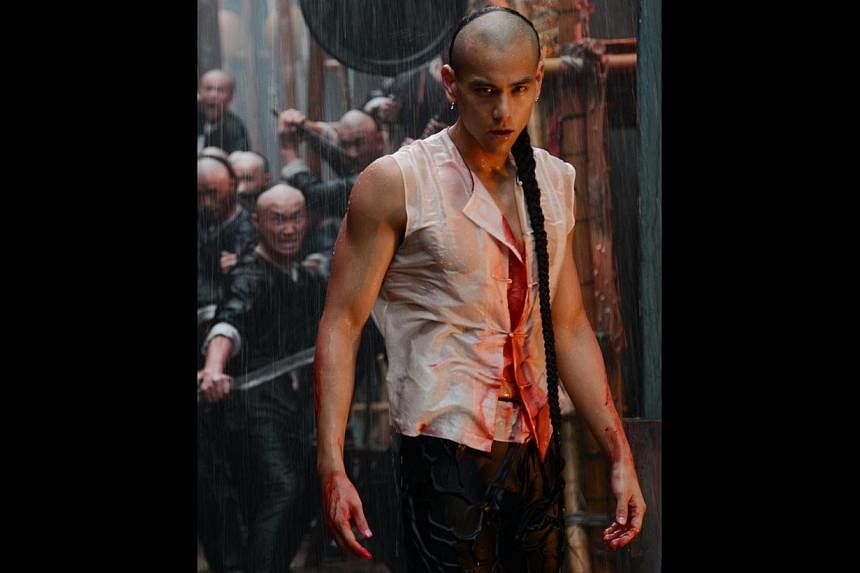Review Action/Period drama
RISE OF THE LEGEND
130 minutes/Opens tomorrow/***
The story: In Qing dynasty Guangzhou, two gangs Black Tiger and Northern Sea are battling for power. Young martial arts practitioner Fei (Eddie Peng) joins Black Tiger and is adopted by the gang's leader (Sammo Hung) as his fourth son. Meanwhile, Fei's childhood friends Fiery (Jing Boran) and Chun (Wang Luodan) are leading a new group called The Orphans, who are trying to destroy the evil gangs once and for all.
Most modern-day moviegoers will tell you that Jet Li in Tsui Hark's Once Upon A Time In China movies (1991-1993) - with his silky gongfu skills, charisma and rousing sense of nationalistic heroism - is the quintessential Wong Fei Hung. In almost every way, he is unmatched, despite the best efforts of those coming after him, including Vincent Zhao.
How does one reinvent an indelible portrait of a classic character?
Hong Kong film-maker Roy Chow's (Nightfall, 2011) answer is to make Wong younger, sexier and a whole lot more bada**.
This is a hot-headed and more impulsive Wong, one who is less obviously good in an origins story that attempts to display all his reckless ways long before he became the legendary folk hero he is now.
Which means Chow's film is more youthful and stylish and could be the key to introducing the character to younger filmgoers who are more familiar with martial expert Ip Man, popularised by Donnie Yen, than they are with Wong.
Taiwanese heart-throb Peng is certainly well cast as the slicker and more hunky Wong - his signature bad-boy smirk is always at the ready and his famous abs are, gasp, on full display in several scenes.
As a standalone wuxia flick, the action sequences are exciting and well-shot and the central story that involves undercover intrigue, as messy as it gets, is moderately entertaining.
But as a Wong Fei Hung flick, older audiences, who associate Wong with being the ultimate dignified man of honour, are going to find this interpretation bizarre and unnecessary.
When did Wong become an Abercrombie & Fitch model crossed with a gangster straight out of the Young And Dangerous (1996) movies?
Although this is meant to pave the way for possibly several more films in a new franchise, it is difficult to gel this vastly different vision with the traditional impression of the character.
Only towards the end of the film does the viewer get a glimpse of the righteous Wong to come, as he realises that he finds more happiness seeking justice for all, rather than avenging death for his own selfish motivations.
The treatment in the finale is admittedly heavy-handed - particularly when Peng is shown grabbing hold of the famous Wong Fei Hung black umbrella as the classic Wong Fei Hung theme song, General's Orders, is heard.
But you are also suddenly reminded that this is, in fact, a Wong Fei Hung movie and not just any standard action flick.
Sometimes, old is gold.
Follow Yip Wai Yee on Twitter @STyipwaiyee


